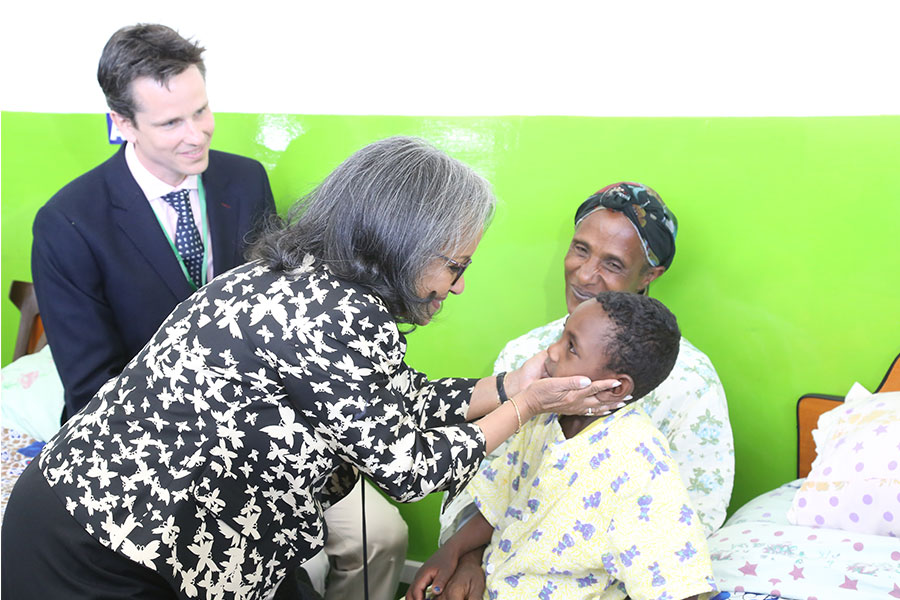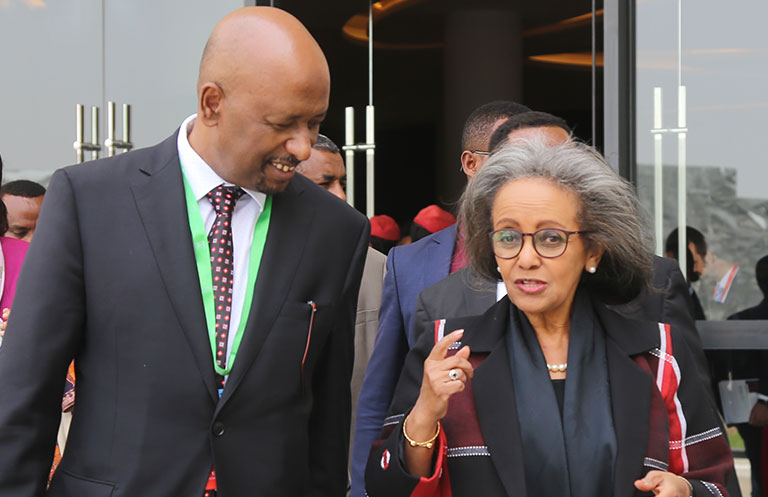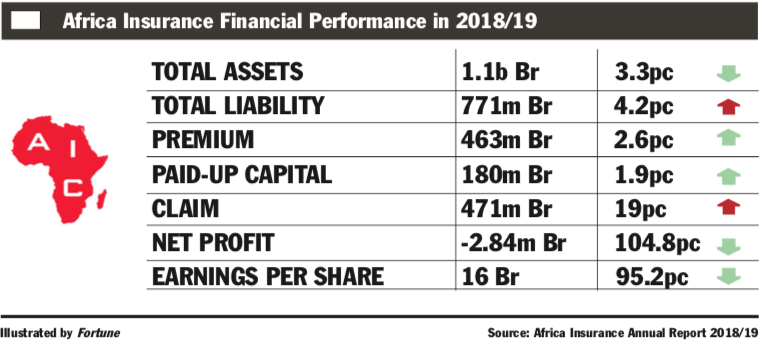
Life Matters | Nov 09,2024
Oct 16 , 2020
By Esayas B. Gebre-Meskel
It should be evident that a more stable Somalia, together with its two larger neighbours, Ethiopia and Kenya, will be the path to a regional economic boom in the Horn of Africa and its immediate surroundings, writes Esayas B. Gebre-Meskel (mysoulqueen@gmail.com), a behaviour change communication advisor who has spent a decade at an NGO working in the same capacity.
Way back in October 1969, a high-profile banquet in the town of Las Anod, a city in self-declared Somaliland, would have probably gone without event had one of the presidential bodyguards not taken aim at close range and shot Somalia's then President Abdirashid Ali Shermarke. On the occasion, he was on an official visit in that town. In the wake of his funeral, Major General Mohamed Siad Barre took over and centralised power. It was an unparalleled period in the history of the country.
“The pre-civil war unified Republic of Somalia had constituted the most promising state-making period in Somali history,” wrote Dominik Balthasar in his 2018 essay published by the International Journal of African Studies.
After a little more than two decades at the helm of power, the fall of Barre set the turbulent path for a civil war that engulfed the whole of the country. It also led to the breakaway of Somaliland.
The story of Somalia is the story of Africa. What happens at one time in one part of Africa happens in another time in a different part of the continent. There are times of unification and periods of division. The continent has a unique history of conflicts. Many member countries in its continent wasted resources waging civil wars, often divided along ethnic lines.
It is in this context that is worth giving a close glimpse at the parts of continent’s rise and fall in terms of peace and stability.
Indeed, the physical structure of Africa somewhat resembles a revolver. With the western flanks of the continent being its butt and the southern part its muzzle, the trigger is where the Democratic Republic of Congo (DRC) is studded. With it, the story goes on, one who can control the trigger could also control the firepower of the revolver.
This thought is not a mere allegory. It was part of a colonial-era geopolitical maxim that had strongly flavoured the African political literature of the time. Resource-rich DRC was meant to become either a firepower springboard for foreign forces to leapfrog their hegemony over the rest of the continent or the breadbasket of Africa.
Hitherto, with all the untapped potential strategic resources still buried beneath the surface, the DRC remains Africa’s perennial flashpoint for conflict, an epidemic of Ebola and political instability. Farther southwards from DRC, home to one of the continent’s highly educated populations, Zimbabwe, once widely viewed as rekindling the hope of Africa, has almost retreated to a basket case, joining the ranks of other conflict-torn economies in the region.
Like Zimbabwe, Ghana, the gold coast of Africa, enjoys the status of having a well-educated population. Unlike Zimbabwe, the West African nation shines and maintains a respectable place on the world stage. Ghana is a byword in Africa for stability and has held numerous democratic elections through which power is peacefully transferred from an incumbent to an opponent - a rare historical feat by African standards.
The tenet of democracy has increasingly become a household desire among African societies. Attempts and efforts to democratise key national institutions in the part of the eastern African region have not been in short supply either. Tanzania quietly takes its fair share of success. It is one of the few countries in the region that has kept a visage of democracy and has seen peaceful transfers of power.
Another political powerhouse in the region is Kenya, which had, in the past, experienced problematic election-related violence.
The importance of institutionalised democratic electoral politics in Kenya cannot be underestimated, but it remains a tough call, given the fact that politicisation of history is stuck in the mainstream political discourse. Elections aside, Kenya continues to uphold its importance for being the hub of commerce, innovative business models and entrepreneurial talents in the region.
In the Horn of Africa, part of the greater eastern African region, Ethiopia is the largest country both in terms of the size of the population and landmass, and being the only one in the region without a sea outlet. Ethiopia, Eritrea and Somalia suffered from civil conflicts and wars within and between each other. Each never had a history of free and fair democratic elections in the past either.
Ethiopia’s attempt to hold one in 2005 was followed by unprecedented post-election violence. The now-defunct EPRDF probably only enjoyed legitimate support from the wider public during and in the immediate aftermaths of the war with Eritrea.
To the north, Eritrea has not even pretended to hold an election ever since it came into being over three decades ago. But it remains, for the most part, relatively stable. Although the burden of economic development needs overwhelmed the regime’s ability to convince young Eritreans in their thousands from fleeing their homeland, Eritrea has achieved some inroads in terms of stability.
With 637,657 square kilometres of landmass stretching along the fringe of the Gulf of Aden and the Indian Ocean that claims the longest coastline in mainland Africa, Somalia remains under pressure from the ongoing civil conflict that splits it along clan lines.
One of Africa’s longest civil wars still roaring at large in many parts of Somalia, it has already claimed the lives of tens of thousands of Somalis in the past three decades. Many more were internally displaced, living in squalid conditions, and numerous others fled their homeland to either live in the refugee camps of the neighbouring countries or have already settled elsewhere in the world. A million people were newly displaced in 2017, bringing the total internally displaced persons (IDP) population to 2.1 million, according to the United Nations.
Still, the courage and perseverance of most Somalis has exceptional meaning in the way they perceive the world around them.
“If a Somali national tells you there is a problem, indeed, there is one for real,” goes a saying.
Somalis are skilled and keen on doing business. Even with the conflict situation in which the large expanse of Somalia is unwarrantedly split under different self-proclaimed authorities, goods and services continue to swap hands, drawing many business interests, flocking mainly from Ethiopia and Kenya.
It should be evident that a more stable Somalia, together with its two larger neighbours, Ethiopia and Kenya, would mean a regional economic boon. It is perhaps that most critical point to rekindling hopes in a region known for its instability.
PUBLISHED ON
Oct 16,2020 [ VOL
21 , NO
1068]


Life Matters | Nov 09,2024

Fortune News | Jan 26,2019

Commentaries | Aug 14,2021

Radar | Apr 19,2025

Viewpoints | Aug 27,2022

Sunday with Eden | Oct 31,2020

My Opinion | Oct 20,2024

Viewpoints | Nov 16,2019

Fortune News | Jun 23,2019

Fortune News | Jan 11,2020

My Opinion | 131772 Views | Aug 14,2021

My Opinion | 128157 Views | Aug 21,2021

My Opinion | 126102 Views | Sep 10,2021

My Opinion | 123723 Views | Aug 07,2021

Dec 22 , 2024 . By TIZITA SHEWAFERAW
Charged with transforming colossal state-owned enterprises into modern and competitiv...

Aug 18 , 2024 . By AKSAH ITALO
Although predictable Yonas Zerihun's job in the ride-hailing service is not immune to...

Jul 28 , 2024 . By TIZITA SHEWAFERAW
Unhabitual, perhaps too many, Samuel Gebreyohannes, 38, used to occasionally enjoy a couple of beers at breakfast. However, he recently swit...

Jul 13 , 2024 . By AKSAH ITALO
Investors who rely on tractors, trucks, and field vehicles for commuting, transporting commodities, and f...

Jul 5 , 2025
Six years ago, Ethiopia was the darling of international liberal commentators. A year...

Jun 28 , 2025
Meseret Damtie, the assertive auditor general, has never been shy about naming names...

Jun 21 , 2025
A well-worn adage says, “Budget is not destiny, but it is direction.” Examining t...

Jun 14 , 2025
Yet again, the Horn of Africa is bracing for trouble. A region already frayed by wars...

Jul 6 , 2025 . By BEZAWIT HULUAGER
The federal legislature gave Prime Minister Abiy Ahmed (PhD) what he wanted: a 1.9 tr...

Jul 6 , 2025 . By YITBAREK GETACHEW
In a city rising skyward at breakneck speed, a reckoning has arrived. Authorities in...

Jul 6 , 2025 . By NAHOM AYELE
A landmark directive from the Ministry of Finance signals a paradigm shift in the cou...

Jul 6 , 2025 . By NAHOM AYELE
Awash Bank has announced plans to establish a dedicated investment banking subsidiary...